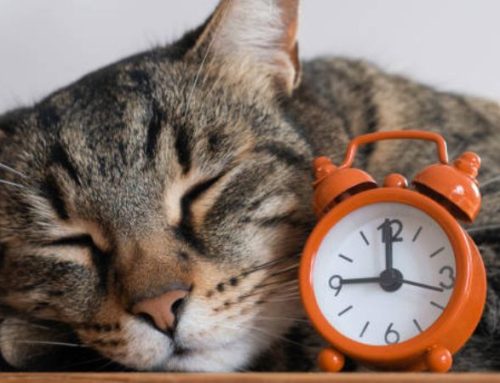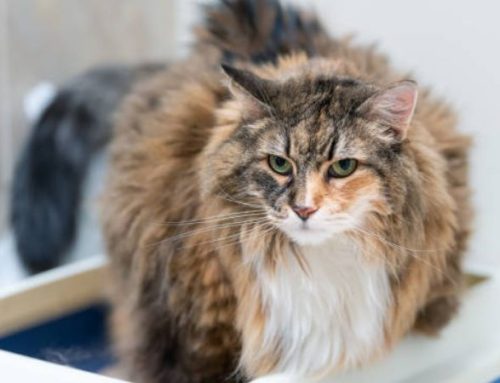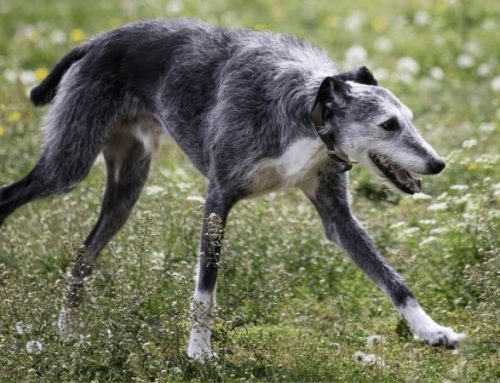When the sun sets and the house grows quiet, you might notice your dog pacing, whining, or refusing to settle down. Nighttime anxiety in dogs is more common than many pet owners realize, and it can be stressful for both your furry friend and you.
Whether it’s a sign of age-related changes, separation stress, or simply a nervous streak, understanding the root causes can help you restore calm evenings and give your dog the peaceful sleep they deserve.
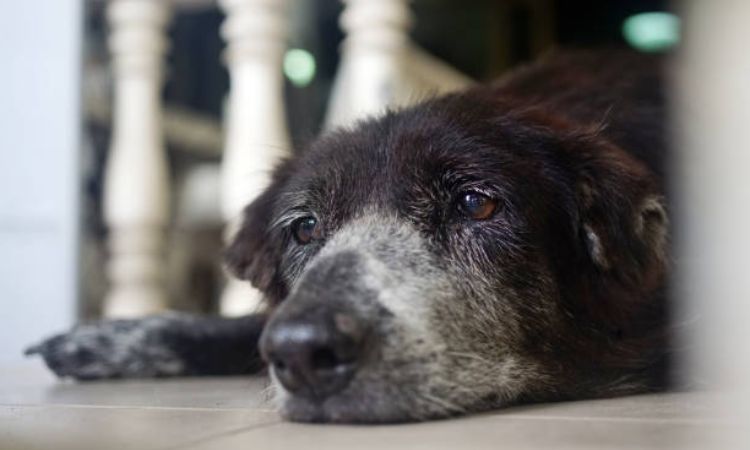
Why Age Makes Nighttime Anxiety Different
As dogs grow older, nighttime anxiety can look and feel very different than it does in younger pets. Aging brings a host of physical and cognitive changes that can amplify stress, making evenings especially challenging for senior dogs. Understanding these unique factors can help owners provide targeted support to keep their aging companions calm and comfortable at night.
The Intersection of Anxiety and Pain/Illness
For many senior dogs, physical discomfort is a hidden driver of nighttime anxiety. Conditions like arthritis, hip dysplasia, or other age-related joint pain can make settling down difficult. Even a normally well-behaved dog may pace, whine, or repeatedly shift positions simply because lying down triggers discomfort. In addition, age often brings changes in bladder and bowel control.
Dogs may wake frequently needing to urinate, and the frustration or stress of needing relief especially if they struggle to navigate stairs or cold floors can appear as general anxiety. These physical challenges can intensify emotional distress, creating a feedback loop where pain and anxiety feed off each other, leaving older dogs restless and agitated at night.
The Role of Canine Cognitive Dysfunction (CCD)
Cognitive decline in senior dogs, commonly known as Canine Cognitive Dysfunction (CCD) or “doggy dementia,” can further complicate nighttime anxiety. CCD affects memory, spatial awareness, and the ability to interpret familiar environments, often leading to disorientation and confusion. One hallmark symptom, “sundowning,” causes dogs to become noticeably more anxious, restless, or even agitated as daylight fades, mimicking or amplifying separation anxiety.
A dog with CCD may pace, vocalize, or appear fearful even when their owner is nearby, struggling to understand why familiar routines or spaces suddenly feel unfamiliar or threatening. This combination of cognitive confusion and emotional sensitivity makes nighttime a uniquely stressful period for senior dogs, requiring both patience and targeted interventions from their caregivers.
The 8 Key Signs of Separation Stress in Senior Dogs
1. Excessive Pacing and Restlessness
One of the first signs of separation anxiety in older dogs is their inability to settle down. Senior dogs may exhibit excessive pacing, wandering from room to room, unable to find a comfortable spot to relax. This behavior is usually more noticeable at night when the household is quieter, and the dog has fewer distractions. If your senior dog is walking in circles, constantly changing positions, or unable to settle down even after exercise or play, it may be a sign that they are experiencing anxiety. This restlessness is often worsened when they are left alone or when the owner is preparing to leave for bed.
2. Destructive Chewing and Self-Injurious Behavior
Destructive behavior is a common symptom of separation anxiety in senior dogs. If your dog begins to chew on door frames, furniture, or bedding, it’s a clear indication that they are struggling with anxiety. In some cases, senior dogs may also engage in excessive licking or other forms of self-injury. This behavior can be particularly problematic during the night, when they are left alone in their designated sleeping area. The act of chewing or licking serves as a coping mechanism, albeit an unhealthy one, to relieve the anxiety and stress they are feeling. If left unaddressed, these behaviors can lead to physical damage or injury to the dog’s mouth, skin, or paws.
3. Immediate Vocalization Upon Owner Departure
Vocalization is another hallmark of separation anxiety in senior dogs, and it’s often noticeable within minutes of the owner getting ready for bed or leaving the room. Dogs suffering from separation anxiety may begin whining, barking, or howling as soon as their owner moves away from them, even if the owner just steps out of the room or into the bathroom. This vocalization is their way of expressing distress at being separated from their loved one. If your dog immediately starts vocalizing when you lie down to sleep or when you leave the room at night, it is a strong indication that they are anxious and in need of reassurance.
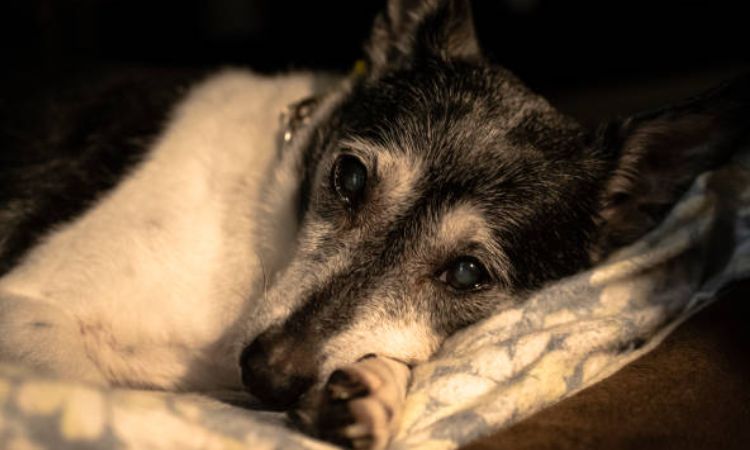
4. Excessive Drooling or Panting
While drooling or panting is normal in hot weather or during physical exertion, it becomes a concern when it occurs excessively without an obvious physical cause. Anxiety-induced drooling or panting in senior dogs is a classic sign of distress. Dogs may begin to drool or pant excessively as a result of elevated stress levels, especially if they are left alone or separated from their owner during the night. If your dog seems to be breathing heavily or salivating more than usual while resting or trying to sleep, it’s worth considering separation anxiety as a potential cause.
5. Demand Barking and Clinginess
Clinginess and demand barking are common behaviors in anxious senior dogs, particularly when the anxiety is related to being separated from their owners. Demand barking involves persistent, attention-seeking vocalizations that increase in intensity until the owner responds. Senior dogs experiencing separation anxiety often follow their owners around obsessively, especially before bedtime. They may attempt to crawl into the owner’s lap, jump up on the bed, or sit right next to the owner, refusing to leave their side. This clingy behavior may be a cry for help, as the dog feels safer in the presence of their owner but struggles with anxiety when left alone.
6. Sudden Incontinence or Accidents
Incontinence or accidents in the house are often signs of anxiety in senior dogs, especially if the dog was previously house-trained. When a dog experiences separation anxiety, anxiety-induced elimination may occur, particularly at night when the dog feels more vulnerable. This can involve urinating or defecating inside the house, even if the dog does not physically need to go. The stress of being separated from their owner or being left alone in a dark room may overwhelm the dog’s ability to control their bladder or bowels. This sudden loss of house-training is a significant red flag and should not be ignored.
7. Hypervigilance and Startle Reflex
Hypervigilance is a common symptom of separation anxiety, and it can be especially pronounced in senior dogs. These dogs may develop an overactive startle reflex, reacting dramatically to everyday household sounds. A knock at the door, the sound of footsteps, or even the rustling of leaves outside can cause a senior dog with anxiety to become agitated or frightened. They may bark or even cower in response to normal noises. This heightened sensitivity is often a sign that the dog is on edge and struggling to cope with their anxiety, making it difficult for them to relax or rest peacefully during the night.
8. Refusal to Sleep in a Designated Area
Senior dogs with separation anxiety may refuse to sleep in their designated sleeping area, opting instead to remain as close to their owner as possible. If your dog insists on sleeping directly next to or even on you in bed, it could be a sign of anxiety. They may feel safer and more secure when in close proximity to their owner, and being alone in a separate room at night can be extremely distressing. This behavior is particularly common in older dogs with cognitive dysfunction or those who experience increased anxiety when they are left alone in a quiet, dark environment.
Proven Calming Solutions for Senior Dogs
Optimizing the Sleep Environment
Creating a peaceful, secure, and comfortable sleep area is one of the most effective ways to calm an anxious senior dog at night.
Comfortable, Dark, Quiet Den:
- Provide a bed with ample cushioning to reduce joint pain or stiffness. Orthopedic memory foam beds are ideal for senior dogs.
- Keep the room dark or use a soft nightlight if your dog needs some visibility.
- Reduce noise distractions from TVs, household appliances, or outdoor sounds.
Proximity:
- Moving your dog’s bed closer to your bedroom can help alleviate separation-related stress. Some dogs feel calmer when they can sense your presence nearby.
- For particularly anxious seniors, consider letting them sleep on a bed in the bedroom temporarily to reduce nighttime distress.
Calming Scents:
- Lavender and chamomile scents have been shown to promote relaxation in dogs. Use a diffuser or lightly scented pillow sprays.
- Dog-appeasing pheromones (DAP) mimic natural maternal pheromones, reducing stress in senior dogs. Products like Adaptil diffusers or collars can be placed near the bed to help calm your dog.
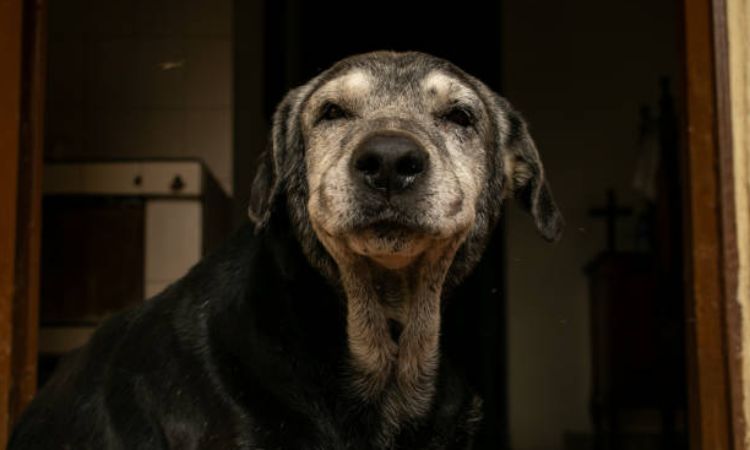
The Power of Predictable Routines
Consistency is crucial for senior dogs with nighttime anxiety. Predictable routines create a sense of safety and control, reducing stress before bedtime.
Establish a Pre-Bed Ritual:
- Take your dog out for a final potty break to prevent anxiety-related accidents.
- Incorporate a light massage or gentle brushing, which can relax muscles and release tension.
- Offer a chew toy or long-lasting treat to provide a positive, calming pre-sleep activity.
Manage Daytime Sleep:
- Ensure your dog gets adequate activity during the day to avoid excessive daytime napping that can lead to nighttime restlessness (“reverse cycling”).
- Structured walks or play sessions earlier in the day can encourage natural sleep cycles at night.
Physical and Mental Enrichment
Physical and mental stimulation during the day can significantly reduce dog anxiety at night.
Low-Impact Exercise:
- Older dogs may need gentler exercise, such as short leash walks, indoor fetch, or gentle swimming.
- Regular movement helps expend energy, reduce restlessness, and support joint health.
Safe Pre-Bed Distraction:
- Long-lasting chews or puzzle toys (e.g., Kongs filled with peanut butter or canned food) can help soothe your dog’s mind while keeping them engaged.
- Avoid overly stimulating toys at night, as these can have the opposite effect and trigger anxiety.
See more related content: Puppy toilet training at night
The Role of Calming Aids and Supplements
Evidence-based calming aids can help senior dogs relax and sleep better. Always consult your veterinarian before introducing any supplement, especially if your dog has other medical conditions or is on medications.
Common Supplements:
- Zylkene (Alpha-Casozepine): Supports relaxation and reduces situational anxiety.
- L-Theanine: Promotes calmness by regulating neurotransmitters related to stress and fear.
- Melatonin: May help regulate sleep-wake cycles and reduce nighttime anxiety.
- Valerian or Magnolia extracts: Plant-based supplements that may ease tension and promote restful sleep.
Pheromone Therapy:
- Diffusers, collars, or sprays that release dog-appeasing pheromones (DAP) can help reduce stress-related behaviors at night.
Important: Supplements can take several weeks to show effects, and their effectiveness varies depending on the individual dog. Always follow dosage instructions and monitor your dog for side effects.
When Professional Intervention is Necessary
While many strategies can help ease anxiety in senior dogs at home, there are situations where professional guidance is essential to ensure your pet’s safety, health, and emotional well-being. Severe or persistent anxiety, especially at night, may require expert evaluation and intervention.
Consulting a Veterinary Behaviorist
If home remedies and environmental adjustments fail, or if your senior dog’s anxiety leads to self-injury or destructive behavior, consulting a veterinary behaviorist is the next critical step. These specialists are veterinarians with advanced training in animal behavior, capable of assessing, diagnosing, and treating complex anxiety disorders.
When to seek help:
- Persistent pacing, whining, or restlessness at night despite calming routines.
- Self-harming behaviors like excessive licking, chewing, or attempts to escape.
- Anxiety-related accidents, such as urination or defecation inside the home.
- Sudden behavioral changes or extreme fear responses triggered by normal household sounds.
A behaviorist will develop a tailored plan combining behavioral therapy, environmental adjustments, and, if needed, medications to reduce stress and improve quality of life. They may also work in collaboration with your regular veterinarian to rule out medical issues contributing to anxiety.
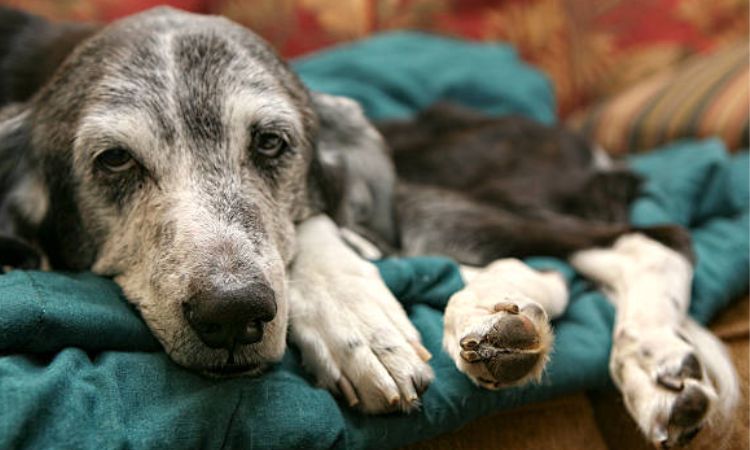
Behavioral Medication Options
For some senior dogs, behavioral medications can be an effective adjunct to behavioral therapies, helping to manage anxiety that is severe or persistent.
Key points:
- SSRIs (Selective Serotonin Reuptake Inhibitors): Medications like fluoxetine or sertraline increase serotonin levels in the brain, helping regulate mood and anxiety. These are often used for long-term management and may take weeks to reach full effect.
- Other anti-anxiety medications: Benzodiazepines (e.g., alprazolam) or tricyclic antidepressants (e.g., clomipramine) may provide short-term relief for high-stress situations, such as thunderstorms or fireworks.
- Medication is a tool, not a cure: These drugs help manage symptoms but should always be paired with behavioral interventions for lasting results.
- Prescription required: All medications must be prescribed by a veterinarian, with careful monitoring for side effects or interactions with other medications.
Professional intervention becomes necessary when senior dog anxiety at night is severe, persistent, or causes harm. Veterinary behaviorists offer expert guidance and tailored treatment plans, while behavioral medications can help manage symptoms effectively. Combined with home strategies like calming routines, environmental adjustments, and enrichment, professional support can help your senior dog enjoy a safer, calmer, and more comfortable life.


